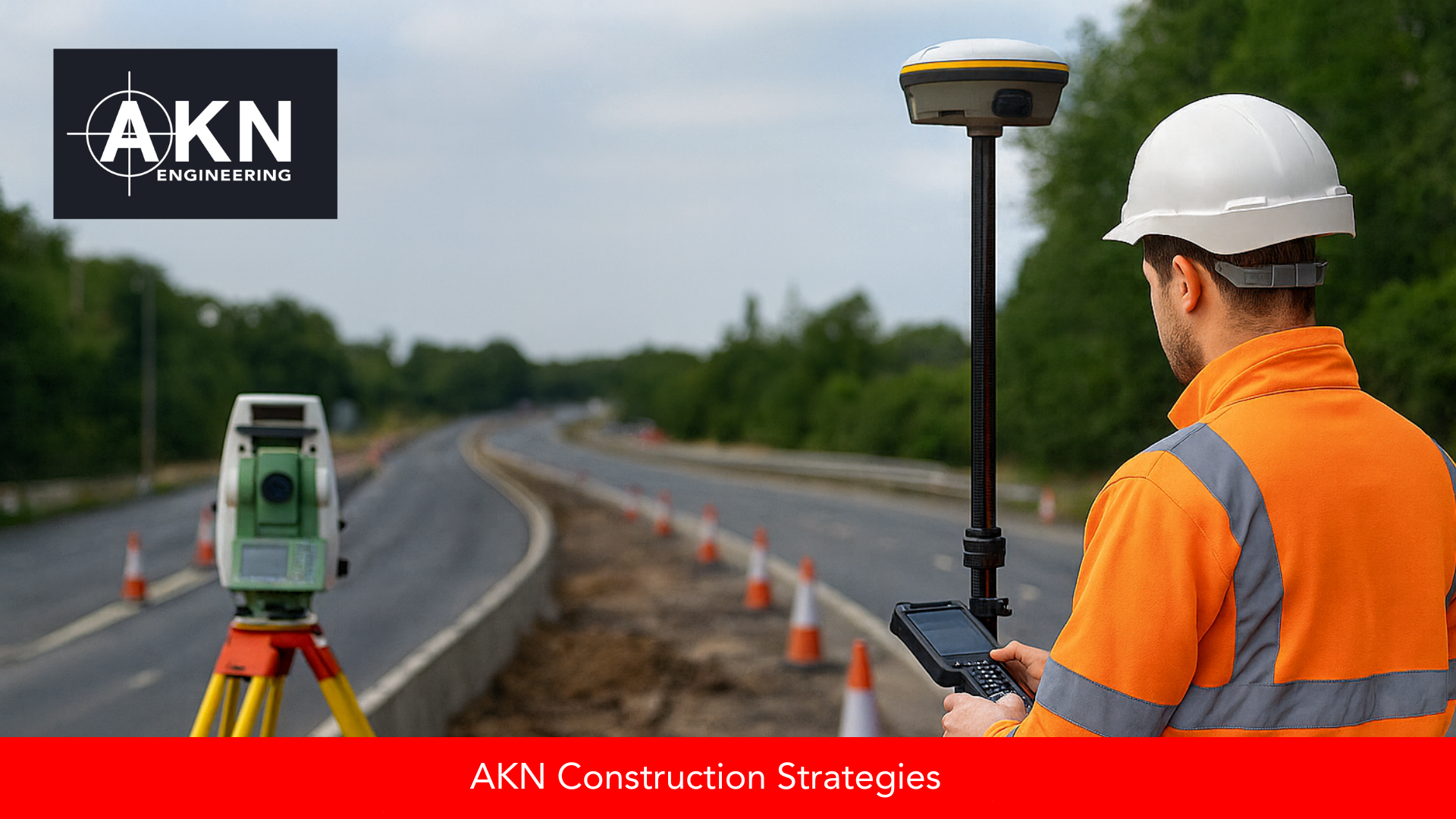Why Control Networks Matter More Than You Think
When you're under pressure to get footings set out or slab levels confirmed, it's easy to underestimate the value of a good survey control network. But control point setting out is the backbone of any successful construction project—especially on highways and infrastructure jobs where millimetres matter.
What Is a Survey Control Network?
A survey control network is a precise framework of reference points used to guide every aspect of site engineering—from setting out to as-built verification. It ties everything back to national grid coordinates, ensuring consistency across all stages of the project.
Control networks are created using GNSS, total stations, and often a combination of fixed and temporary benchmarks. This is especially important for linear projects like highways, where errors can compound rapidly over distance.
Why Grid Setup Should Be Your First Step
Before any foundations are marked out or drainage runs are plotted, your control grid needs to be in place and verified. This helps you:
--> Avoid alignment errors
--> Detect and correct for distortion in large sites
--> Make sure every trade is working to the same reference
Skipping or rushing this stage leads to cumulative errors and potentially expensive corrections. As outlined by the Institution of Civil Engineers, robust setting out practices are essential to meet tolerances in infrastructure projects.
You’ll also be expected to demonstrate competence in setting out and documentation as part of the Construction Design and Management Regulations, especially if you're acting as principal contractor or designer.
Common Pitfalls (and How to Avoid Them)
Here’s what we often see go wrong:
Poorly spaced or unstable control points lead to unreliable measurements over large areas
No redundancy – no cross-checks or verification, so errors go undetected
Control not tied to a known coordinate system – unclear if it’s local or grid (OS), causing problems with CAD/design alignment
Control established too early, then gets disturbed by earthworks or site activity
No record of how the control was set up – missing setup reports, calibration details, or transformation data
Inaccessible or obstructed control points – e.g. buried under materials, behind fences, or in dangerous locations
Using a mix of coordinate systems – e.g. combining grid and local without consistent transformation
No GNSS or total station cross-checks – relying on one method only increases risk
Not checking for movement over time, especially near excavation, piling, or structures
Relying on control from others without verification, even if "the designer" or "main contractor" provided it
Your control setup should evolve with the site.
Temporary points need to be clearly marked, protected, and regularly checked—especially if heavy plant is moving nearby.
Control Point Setting Out: How We Do It
At AKN Engineering, we prioritise setting out control points before anything else. For highways jobs, we establish a network using GNSS base-rover systems and cross-check with total station traverses.
Once the network is validated, we lock in our grid and upload it to machine control systems where required. Every stage—from kerb lines to drainage and street lighting—is built off this foundation.
We also record control data in our Inspection Test Records (ITRs), so project managers have a clear paper trail for audits and verification.
Why Clients Should Care
If you’re a project manager or contractor, here’s the bottom line: survey control isn’t just a technical detail—it’s your safeguard against claims, rework, and non-compliance.
Poor control can lead to:
--> Drainage falls in the wrong direction
--> Slab levels clashing with thresholds
--> Delays while survey teams re-establish points
Investing in proper control from day one means fewer surprises and smoother handovers.
If your control network is off, everything that follows will be too. Getting it right from the start isn’t optional — it’s essential for accuracy, compliance, and a smooth build.
👉 Need Help on your next project? ☎️ Call us on 01279 927 033 or learn more via our website -> www.aknengineering.co.uk


